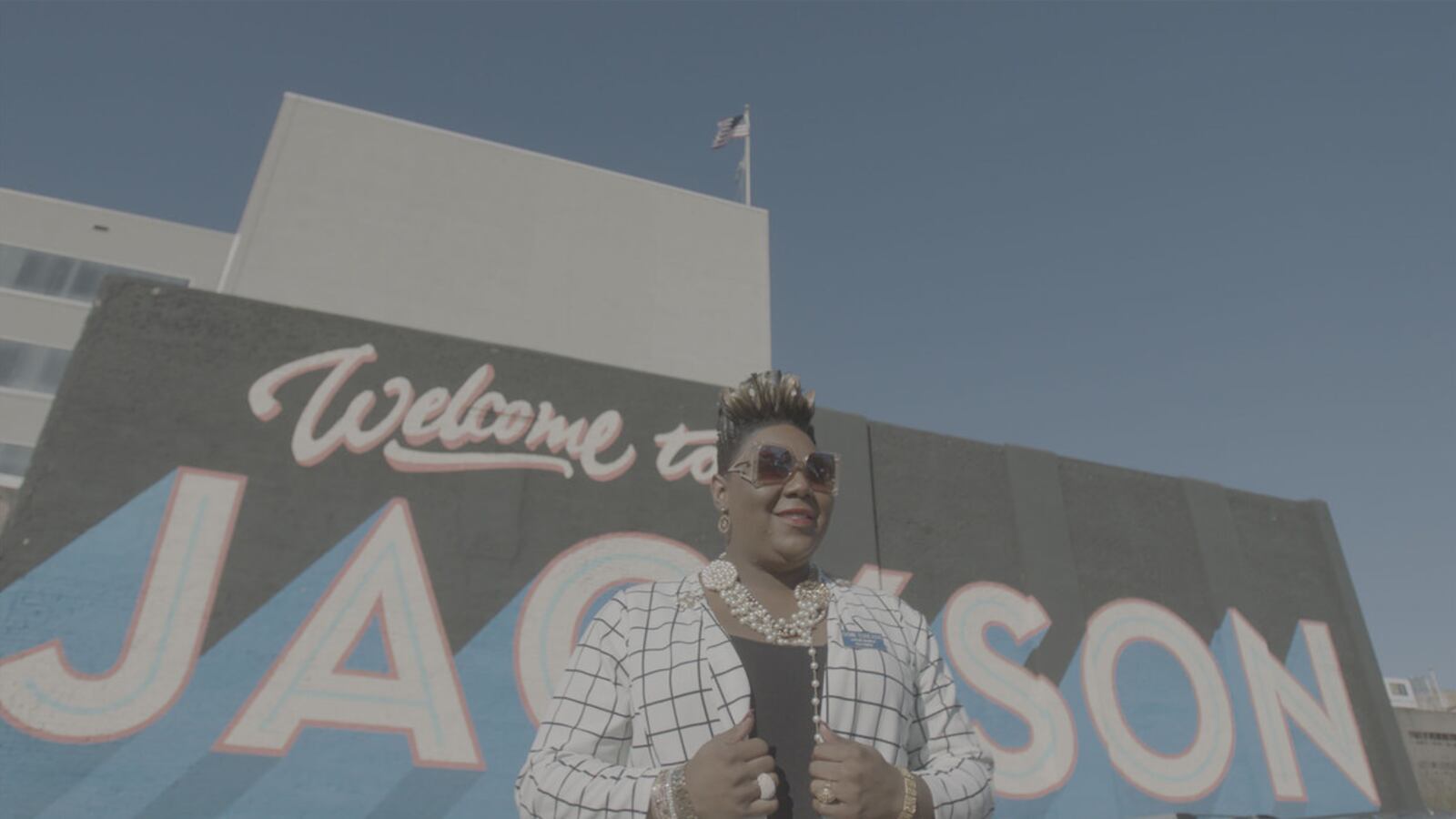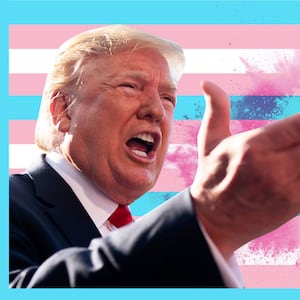Like many Americans who did not vote for Donald Trump, Tony Zosherafatain saw the 2016 presidential election as a watershed moment, one that required action on his part.
“The week after Trump won, I was really in shock,” Zosherafatain told The Daily Beast in a phone interview. “I had this feeling, ‘OK, he's going to come after the trans community.’”
In hindsight, he wasn’t wrong. From its early days right until this week, the Trump administration has worked to erase trans Americans from official websites, removed protections from discrimination, banned trans members of the military, legalized discrimination based on religion, created new rules to ban trans women from women’s shelters and dedicated its mighty legal resources to try to stop trans people from being treated equally.
“Trump’s actions have left me feeling invisible, threatened, and unsure about the future,” said Zosherafatain. His first thought to counter his very accurate prediction was to use his talent as a filmmaker, and he said that’s when he came up with the title: Trans in Trumpland.
“I had been making some films before that year,” he said. The 32-year-old Boston native’s film career began with I am the T, a documentary series about transgender experiences in culturally diverse settings. His prior films include Finding Cedar, Fratello, and I am Isak.
“So, I was like, ‘OK, I need to do this. I need to combine my trans identity, my Iranian-American identity and my fear and translate that into film to help tell our stories.’”
What happened next will be familiar to anyone with a vision but few resources. Zosherafatain spent the next three years developing the concept, creating a production and raising money through Kickstarter. Last year, with financing and a plan in place, the trans man set off from his hometown of New York City for North Carolina, Mississippi, Texas, and Idaho.
He and his film crew interviewed four trans Americans in those four states, where being themselves was a daily challenge, because of both local and federal oppression.
“These are states where you're not going to have the same rights as you do in New York or California,” he said.
The biggest obstacles Zosherafatain and his crew face are finding a distributor and intertwining the constant onslaught of news impacting the trans population with interviews conducted a year ago.
“It seems like every week there's like a new attack on the trans community,” he said. “So, what we're doing is incorporating a lot of news clips, trying to keep up to date with developing things, making sure that the end of the film is up to date about current issues. It has honestly been hard to keep track of that… inserting the political headlines into the person's journey of each character in the four states.”

Army Sgt. Shane Ortega (ret.), Idaho
Courtesy 'Trans in Trumpland'Idaho—where transgender student athletes are outlawed from competing with students who are not trans, also known as cisgender—is where Zosherafatain interviewed retired Army Sgt. Shane Ortega.
He is an Iraq War veteran and former U.S. Marine who transitioned while in active duty. In addition to sharing his thoughts about Trump’s trans military ban, Ortega talked about the administration’s impact on the trans indigenous population, of which he is a member.
In Mississippi, Zosherafatain met Evonne Kaho, an executive running a non-profit organization benefiting the trans population of her hometown of Jackson.
“She’s a Black trans woman,” he said, “known as the queen mother of the South, because she has quite literally taken in homeless trans folks… housing people, getting them HIV care, getting them health care. She's an incredible person, very resilient woman, doing the necessary work they have to do in the South.”

Ash, North Carolina
Courtesy 'Trans in Trumpland'Another chapter takes Zosherafatain to North Carolina to meet a 15-year-old trans boy named Ash and his mother Daisy.
“Ash’s story in the film really focuses on the start of high school, as a newly transitioning teenager and also his battle with his state and its anti-trans bathroom bill,” he said, speaking of HB2, the 2016 law that was only finally resolved by a federal judge in July 2019. “That was quite devastating, you know? Here you are, you're coming out as your true self and you can’t even use the right bathroom.”
The fourth and final chapter focuses on immigration.
Zosherafatain and his team traveled to Houston, Texas, to talk with Rebecca Chapa-Garcia. “She is a Mexican-American trans woman. She came here legally as a kid, but [her family] overstayed their visas. So she got detained by ICE four times since Trump won. And each time, while in ICE custody, she was misgendered, mistreated. prevented from taking her hormones. So her story focuses on her journey through ice detention to her granting of asylum.”
The film is shot, and now in the editing process. Three big names in the trans community have been announced as backing the production: actress Trace Lysette was announced as an executive producer on Wednesday, alongside trans activist and pioneer Miss Major Griffin-Gracy.
Late Wednesday, Zosherafatain revealed a third executive producer: Instagram sensation Chella Man, a transgender, deaf, genderqueer actor and artist and Jewish person of color with half a million followers.
Zosherafatain’s mission now is to find a distributor who will release his film in October 2020, just before the presidential election. But he admitted he’ll accept a later release date, if that’s what it takes to get it seen.
“I think people are going to need to reflect upon the Trump era, whatever happens,” Zosherafatain said.


